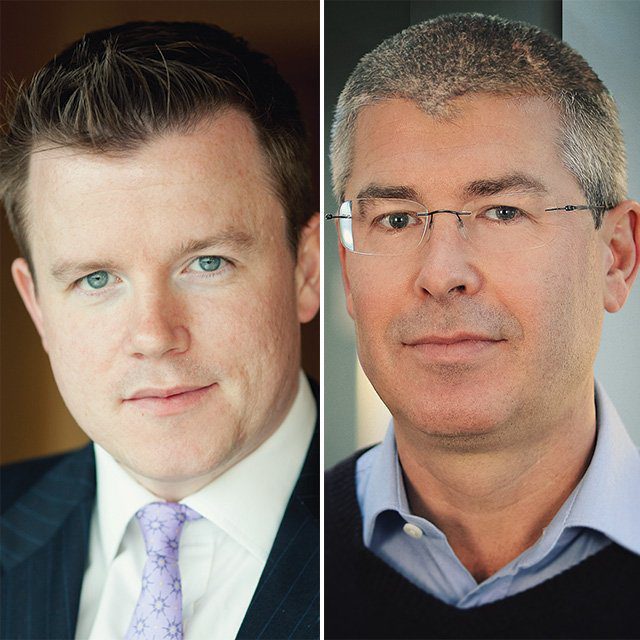Sustainable & Overall Asset Manager of 2022: Schroders

It’s been a couple of good years for Schroders portfolio managers Simon Webber and James Gautrey. In 2021, the duo won the Envestnet/ThinkAdvisor award in the Global, International category. In 2022, they won for their Hartford Schroders International Stock fund in the Sustainable Category and took home the big trophy, Asset Manager of the Year, beating out nine other management teams.
Gautrey and Webber, who have been co-managing the International Stock Fund since 2014, returned 11.4% in 2021, outpacing the benchmark by 3.6%. Further, they’ve averaged 13% over the past five years, according to Envestnet analysts, who describe the fund as a “large cap international core equity strategy with a growth tilt and a quality bias that consists of 50-70 stocks with dynamic exposure to emerging markets.”
Further, the team “attempts to exploit pricing inefficiencies that are created by the ‘growth gap.’ This is when the market either underestimates the future growth of a company based on short-term thinking … or fails to recognize catalysts that may alter the growth trajectory of a business,” according to Envestnet.
ESG is integrated into their process, Webber said, noting they don’t exclude sectors, such as energy. “[Some thought] the fossil fuel sector was un-investable, but actually, there is a critical transition to be made towards less emission in terms of energy sources. And those companies can have a significant role to play in the transition and in building the new energy infrastructure,” Webber said.
Energy was one area where they saw an “opportunistic growth gap” as the sector recovered. This growth gap takes advantage of when the market overreacts in the short term, Gautrey explained. “Markets are uncomfortable thinking in six to 12 months. … People look at the last data point and assume that it is the new direction forever. And share prices tend to overreact dramatically.”
They focus on balance sheet strength and “look through the valley to the other side,” he said This typically is in the opportunistic trades, but could be in core as well.
“[In 2021] people were beginning to worry about … inflation returning, tighter monetary policy leading to higher real interest rates and what that meant for valuation, and particularly the shape of the market with respect to value verses growth,” Gautrey explained.




